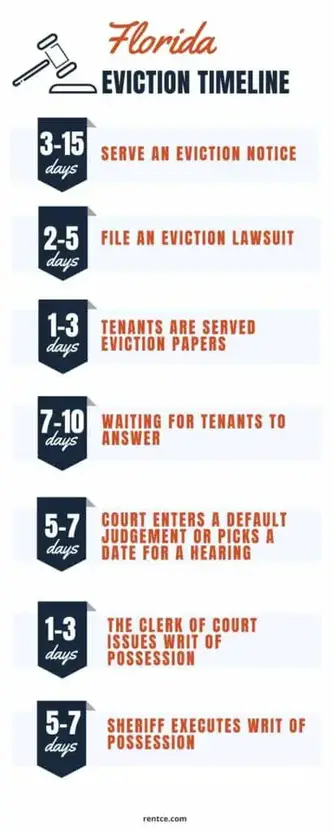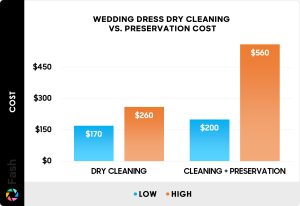Contents
If you’re a landlord in Florida dealing with the unfortunate situation of evicting a tenant, you may be wondering about the costs involved in the eviction process. Understanding the financial implications of evictions is crucial for landlords, and this article aims to shed light on the “Cost of Eviction Process in Florida.” From legal fees to court costs and potential losses, we’ll explore all the factors that contribute to the total expense of evicting a tenant in Florida. By the end of this article, you’ll have a clear understanding of what to expect when it comes to the cost of eviction in the Sunshine State.
Filing Costs
Court Filing Fee
When considering the cost of filing for an eviction in Florida, it’s essential to take into account the court filing fees. The court filing fee varies based on the county in which the eviction is being processed. Typically, this fee can range from $100 to $400. It’s crucial to check with your specific county’s courthouse or consult with an attorney to determine the exact filing fee required in your area.
Service of Process Fee
In addition to the court filing fee, you may also need to budget for a service of process fee. This fee covers the cost of serving the eviction notice to the tenant. The service of process fee covers the expense of having a process server deliver the legal documents to the tenant. The cost of this service can vary depending on the county, ranging from approximately $40 to $100.
Attorney Fees
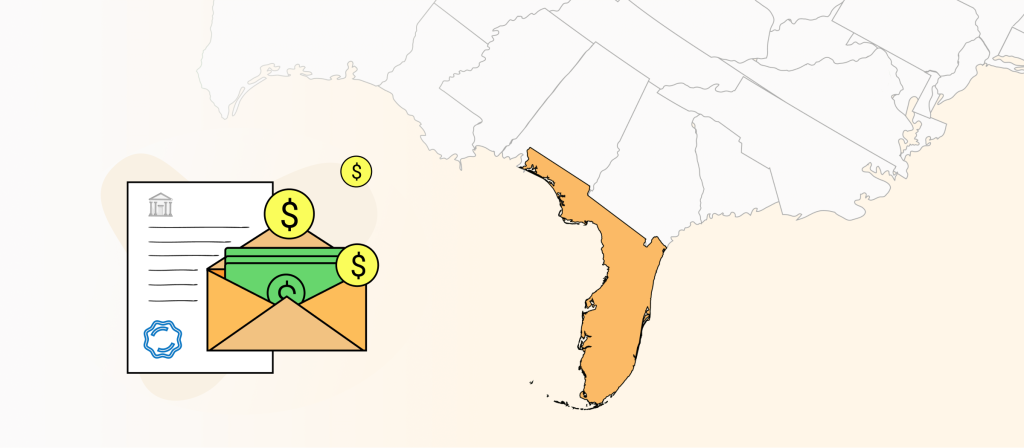
Legal Consultation Fee
While it is not mandatory to hire an attorney for the eviction process in Florida, seeking legal consultation is often recommended. Attorneys can provide valuable guidance and ensure that you follow all of the necessary legal procedures correctly. Consulting with an attorney typically involves an initial fee, which can range from $100 to $300, depending on the complexity of your case and the attorney’s experience.
Hourly Representation Fee
If you decide to hire an attorney to represent you throughout the eviction process, you will likely incur an hourly representation fee. The attorney will bill you for their time spent on your case, including court appearances, document preparation, and any necessary negotiations. Hourly representation fees can vary significantly, ranging from $150 to $500 per hour depending on the attorney’s experience and skill level.
Court Costs
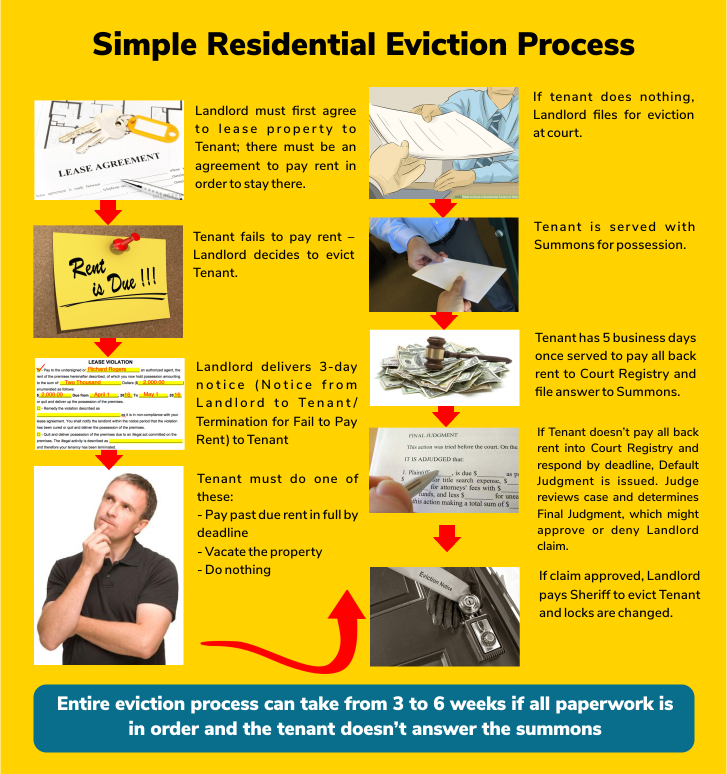
Jury Fee
In rare cases where a jury trial is requested or required, there may be additional costs involved. The jury fee covers the expenses associated with selecting and accommodating potential jurors. This fee can vary depending on the county and the duration of the trial, ranging from $200 to $500 or more.
Witness Fee
If you need to call witnesses to testify during the eviction proceedings, you may be responsible for paying witness fees. Witness fees typically cover the costs associated with the witnesses’ time, travel expenses, and any lost wages. Depending on the number of witnesses, these fees can range from $10 to $50 per witness.
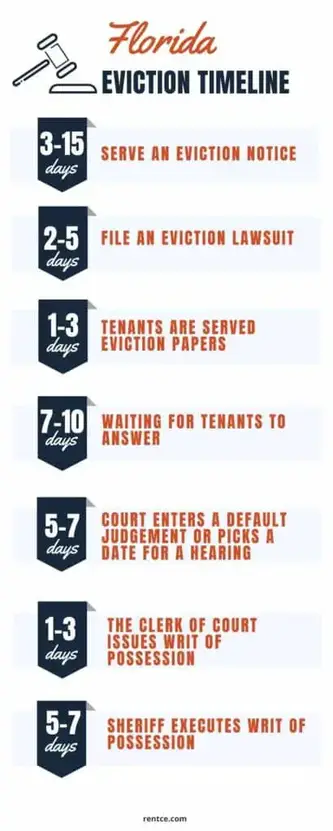
Transcript Fee
If you require a transcript of the court proceedings, you will need to cover the transcript fee. This fee includes the cost of transcribing the court hearing or trial and can vary depending on the length and complexity of the case. Transcript fees can range from $3 to $5 per page, making it essential to budget accordingly.
Sheriff’s Fees
Writ of Possession Fee
If the court grants you an eviction judgment, a writ of possession will be necessary to enforce the eviction order. The writ of possession fee covers the cost of the sheriff’s office executing the eviction and ensuring that the tenant vacates the premises. In Florida, the average fee for a writ of possession is approximately $90 to $150.
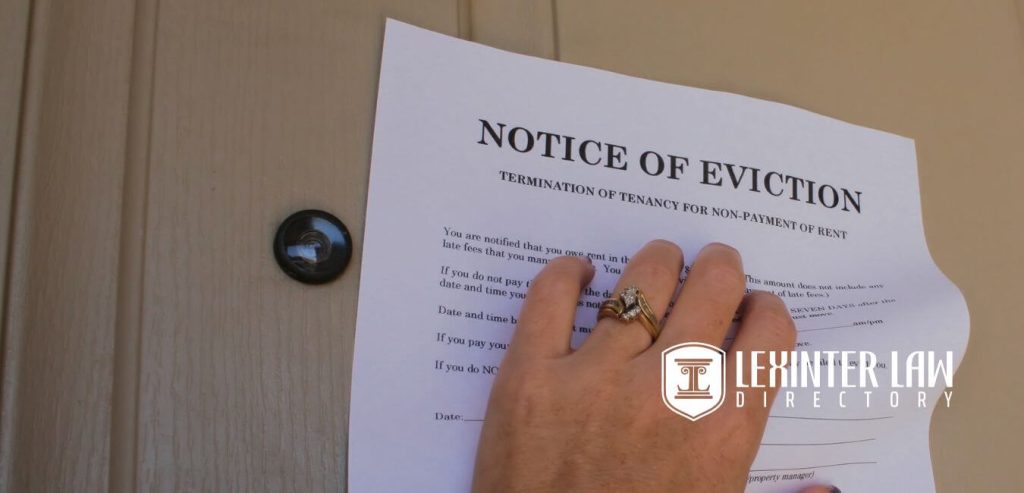
Execution Fee
In cases where law enforcement needs to physically remove the tenant or their belongings from the property, an execution fee may apply. The execution fee covers the cost of the sheriff’s office coordinating the removal process. Depending on the complexity of the eviction and the necessary resources, execution fees can range from $100 to $300.
Moving and Storage Costs
Moving Expenses
As part of the eviction process, you may need to account for potential moving expenses incurred by the tenant. If the tenant chooses not to comply with the eviction order, you may need to hire movers to remove their belongings from the property. Moving expenses can vary widely depending on the distance, the volume of belongings, and any additional services required. It is advisable to obtain quotes from several moving companies to determine the most accurate cost estimate.

Storage Fees
If the tenant’s belongings are removed from the property during the eviction process, you may incur storage fees. These fees cover the cost of temporarily storing the tenant’s belongings until they can be reclaimed. Storage fees can vary depending on the amount of space required and the duration of storage. It’s essential to consider the potential cost of storage when planning for an eviction.
Property Restoration
In cases where the tenant has caused damage to the property during their tenancy or upon eviction, you may need to budget for property restoration costs. These costs can include repairs to structural damage, repainting, replacing damaged fixtures or appliances, and any other necessary refurbishments. Property restoration costs can vary significantly depending on the extent of the damage and the prices of materials and contractors in your area. Obtaining multiple quotes from licensed professionals can help you estimate these expenses accurately.
Tenant Relocation Assistance
Advance Rent and Security Deposit
As part of the eviction process, you may be entitled to collect any unpaid rent or damages by utilizing the tenant’s advance rent and security deposit. These funds can help offset any financial losses and cover the expenses associated with eviction, such as filing fees, attorney fees, and property restoration costs. Remember to comply with the legal requirements for deducting these amounts and provide a detailed explanation to the tenant.
Moving Costs
In some cases, you may need to provide or assist the tenant with relocation assistance. This assistance can include providing funds to cover moving costs or arranging for a moving company on behalf of the tenant. Moving costs can vary depending on the distance to the new location, the amount of belongings, and any additional services required. It is essential to consider these potential expenses when determining the overall cost of the eviction process.
Temporary Housing
If the tenant becomes displaced due to the eviction, you may also need to consider the cost of providing temporary housing. Temporary housing expenses can include hotel or motel accommodations, short-term rentals, or other housing options. The cost of temporary housing will depend on the location, duration of stay, and any additional amenities required. It’s important to budget for these potential expenses to ensure a smooth eviction process.
Unpaid Rent
Accrued Rent
When evicting a tenant, it’s common to address any unpaid rent or past due amounts. Accrued rent refers to the total amount owed by the tenant for the duration of their lease or up until the eviction process. It’s crucial to calculate the accurate amount of accrued rent owed and include it in the eviction filing. This can help you recover some of the financial losses incurred due to the tenant’s non-payment.
Late Fees
In addition to unpaid rent, you may also be entitled to collect late fees from the tenant. Late fees are specified in the lease agreement and are typically enforced when rent payments are not made on time. The amount of late fees can vary depending on the terms outlined in the lease. However, it’s important to ensure that the late fees charged comply with Florida’s laws and regulations regarding tenant-landlord relationships.
Property Damage
Repair and Maintenance Costs
In cases where the tenant has caused damage to the property, you may need to budget for repair and maintenance costs. These costs can include repairing structural damage, fixing plumbing or electrical issues, replacing damaged appliances or fixtures, and addressing any other necessary repairs. The cost of repair and maintenance will depend on the extent of the damage, labor costs, and the prices of materials in your area. Obtaining multiple quotes from reliable contractors can help you plan for these expenses effectively.
Clean-Up Expenses
When a tenant is evicted, there may be a need for thorough cleaning of the property. Clean-up expenses can include removing any remaining belongings, deep cleaning carpets, scrubbing surfaces, and restoring the property to a habitable condition. The cost of clean-up will depend on the size of the property, the level of cleanliness required, and the services needed. Factoring in these potential expenses can give you a more comprehensive understanding of the total cost of the eviction process.
Costs of Dispute Resolution
Mediation Expenses
If you choose to resolve the eviction dispute through mediation, you may need to account for mediation expenses. Mediation fees commonly cover the costs of hiring a mediator to help facilitate negotiations and find a mutually agreeable resolution. The fees for mediation can vary depending on the mediator’s experience and the complexity of the case. Some mediators charge an hourly rate, while others may have a fixed fee structure.
Arbitration Fees
In some cases, parties may opt for arbitration as a means of dispute resolution instead of going through a traditional eviction trial. Arbitration fees cover the cost of hiring an arbitrator, who acts as a neutral third party and makes a binding decision about the dispute. Arbitration fees can vary depending on the complexity of the case and the arbitrator’s experience. It’s essential to consider these fees when deciding on the most suitable method of dispute resolution for your eviction case.
Additional Fees
Notary Fees
Throughout the eviction process, there may be a need for various legal documents to be notarized. Notary fees cover the cost of having a notary public witness and certify the authenticity of these documents. Notary fees typically range from $5 to $10 per document, depending on the state regulations and the specific notary service provider.
Copying and Printing Costs
During the eviction process, you may incur expenses related to copying and printing documents, including court filings, notices, and correspondence. These costs can add up, especially if multiple copies are required or if the eviction proceedings prolong. Copying and printing costs vary depending on the quantity and size of the documents, so it’s essential to budget for these potential expenses.
As the cost of evicting someone in Florida can vary greatly depending on various factors, it’s important to consult with legal professionals, such as attorneys or eviction services, to gain a more accurate estimate of the expenses involved. Proper planning, budgeting, and understanding of the potential costs associated with an eviction can help ensure a smoother process for landlords and property owners seeking resolution in Florida’s legal system.

